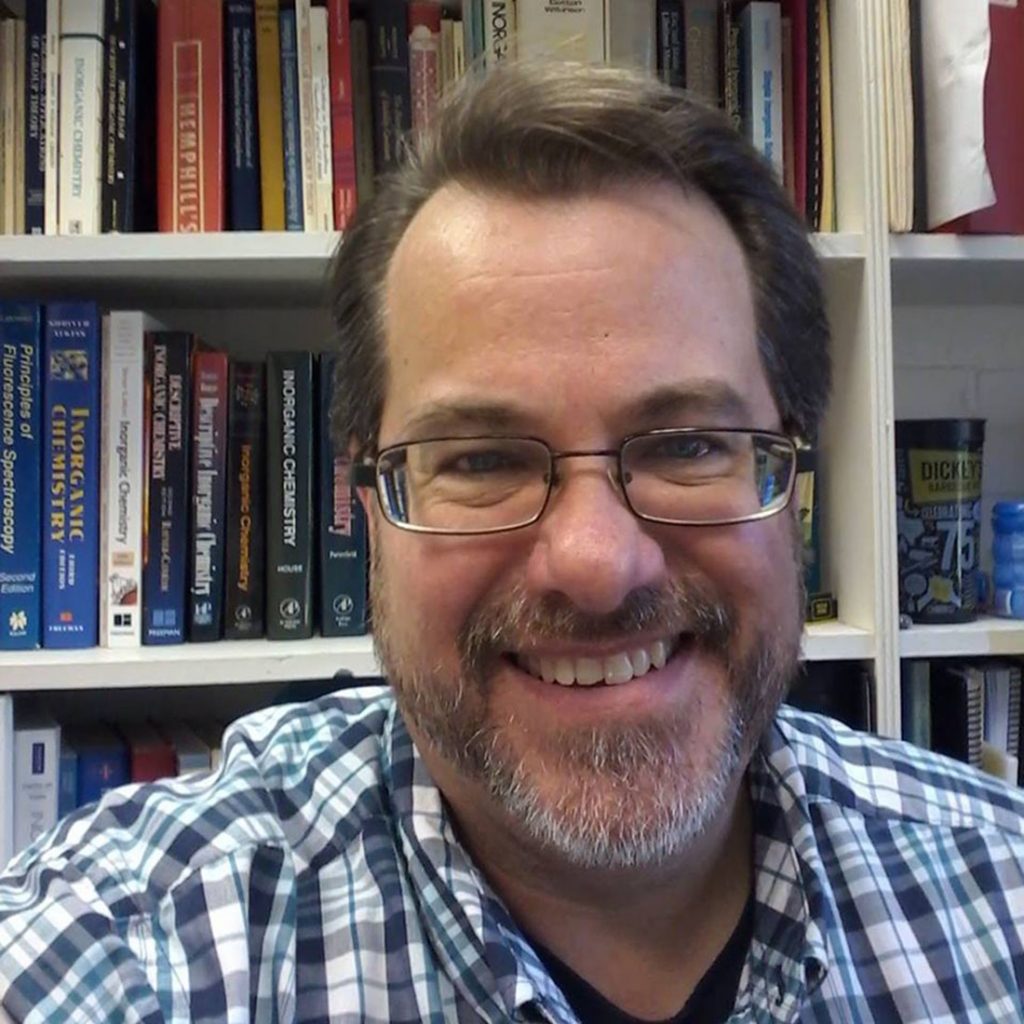CHEM 1106 - General Chemistry II
Course Description
This course is the second semester of General Chemistry and will serve as a continuation of the introduction to fundamental chemical principles begun in CHEM 1105.
Topics to be covered this semester include Chemical Bonding, Structure and Geometry of Molecules, Solids, Solutions, Chemical Kinetics, Chemical Equilibrium, Acid-Base Chemistry, Chemical Thermodynamics, and Electrochemistry. Many of these topics are challenging, and the mathematical component of CHEM 1106 is significantly greater than that of CHEM 1105.
Course Materials
Textbook: Chemistry: The Central Science
Brown, LeMay, and Bursten, 10th edition, Prentice Hall Pub., 2006.
Calculator: A scientific calculator is required. An inexpensive scientific calculator with scientific notation, square root, trigonometric, exponential, and logarithmic functions can be purchased for less than $20, and will be sufficient for the needs of this course.
Dates:
Spring B: Mar 17 – May 6, 2025
Summer B: Jul 14 – Aug 15, 2025
Department: Chemistry
Course: CHEM 1106
Credit Hours: 3
Prerequisites:
CHEM 1105, CHEM 1105L
MATH 1119 or equivalent, or placement in a higher level math course.
Corequisite: CHEM 1106L
Satisfies:
NS Natural Sciences requirement, QR Quantitative Reasoning requirements, IB Mathematics Requirement, IID Laboratory Science requirement
(when taken with corresponding lab course CHEM 1106L)
The above requirements are from the Randolph College general education program. Check with your home institution to see if this course fulfills your requirements.
Tuition & Fees:
$1,125 tuition
Textbooks and other course materials can be purchased separately from the source of your choosing.
Your Instructor

Bill BareAssociate Professor of Chemistry
B.S., Chemistry, Florida State University; Ph.D., University of Virginia
I began teaching at Randolph College thinking that I would only be here a year. But when the opportunity arose to make the temporary position permanent, it wasn’t hard to make a decision. Randolph is a completely different world than I was accustomed to from my educational background at large state universities, and I really liked the personal feel of the college. The red brick campus began to feel like home almost immediately.
Environmental chemistry is my favorite course to teach because it brings together all of the material learned in introductory courses and places it in the context of important national and global issues. Smog, ozone depletion, greenhouse gas emissions, global warming, alternative fuels, and ground water contamination are all issues of tremendous current importance, and are also all issues that cannot be understood without understanding the chemistry of the species and processes involved. Although many of these issues represent great concerns, they also provide great opportunities for future creative chemists to make meaningful improvements to people’s lives.